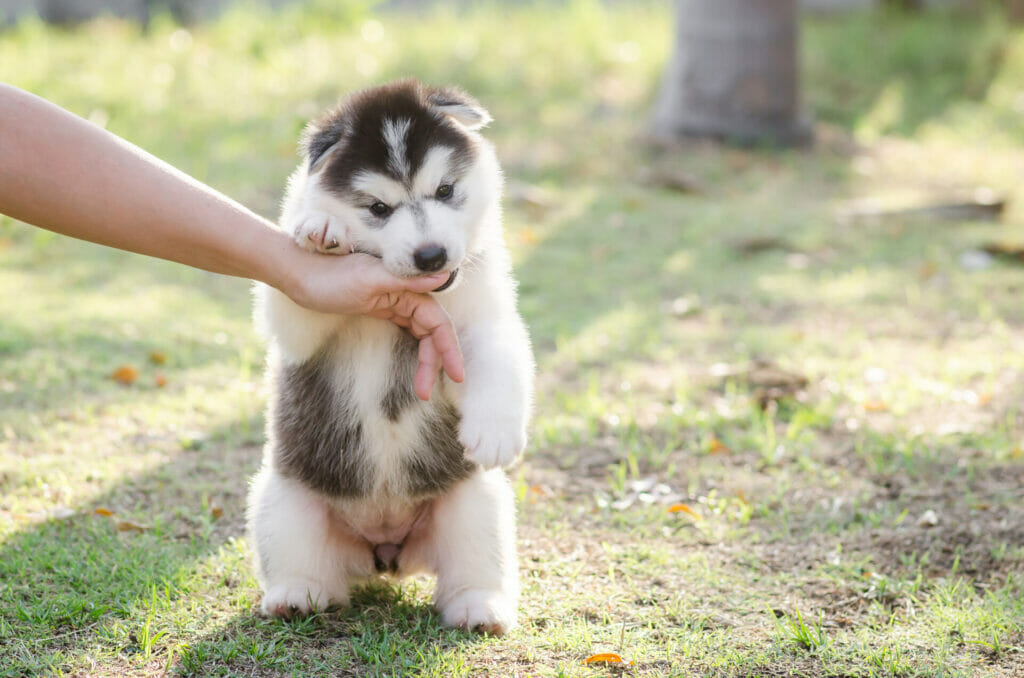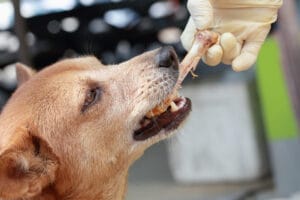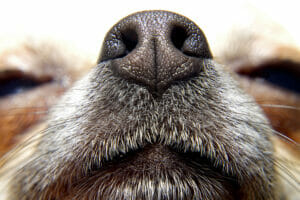Is your new puppy constantly biting your arm and nipping at you? Don’t worry, you’re not alone! This is one of the more common behaviors new puppy parents have trouble with but there are plenty of great training tips to navigate this period. We sat down with Lisa Gallegos CPDT-KA with help from Robert Haussmann from DogBoy NYC to discuss puppy biting and learn about the best ways to minimize this behavior in your pup.
When should new puppy parents expect to see their puppy begin biting?
This is a very common behavior and new puppy parents can see this start as early as when you first bring home your pup. It can be different for every dog; sometimes the transition to a new home can be nerve-wracking for your pup so they might not start until they’ve started to settle into their new home. But generally, 16 weeks of age is the worst period of puppy biting.
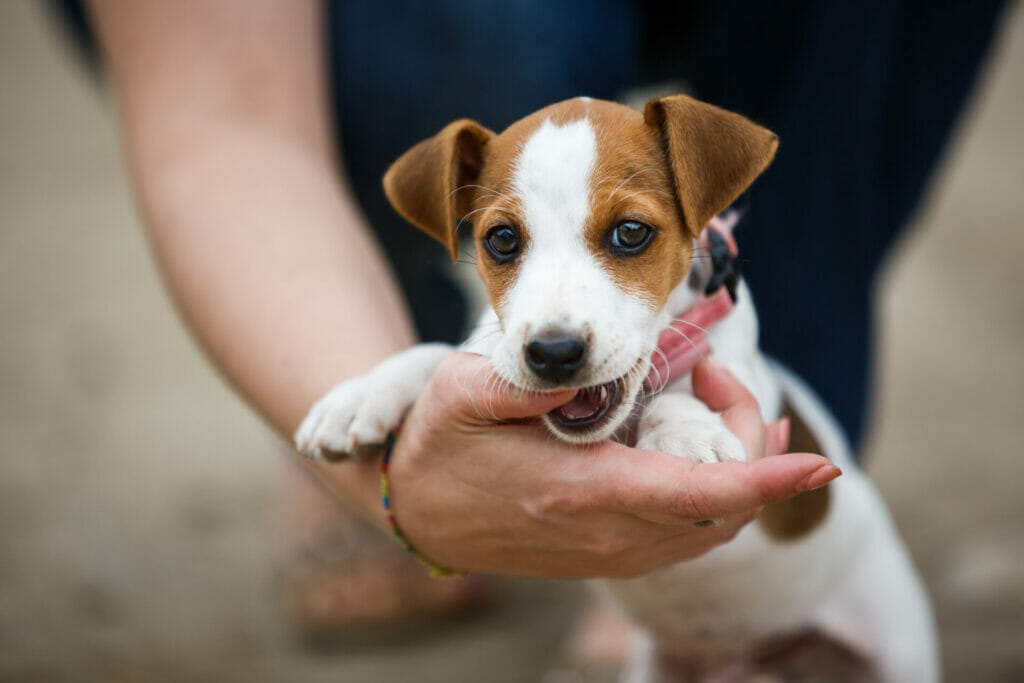
So my puppy is in the throes of its biting stage… What is the best thing to do to stop this behavior?
There’s a “training ladder” of steps to take in order to make sure your puppy stops biting you! First of all, make sure your puppy has had proper mental stimulation throughout the day: sometimes they’re biting you because they’re bored and want to play. A dog who hasn’t been mentally stimulated is more likely to bite. This can be something as simple as feeding your puppy their food on a snuffle mat! Check out these other great ways to mentally enrich your puppy.
The second step is redirection. A lot of puppies don’t realize that it hurts you when they’re biting because it’s their form of play (or they’re just teething and want something to chew on). When redirecting to a toy, it is important to have a variety of toys so that you direct to a similar toy.
Having a latex toy, a fluffy toy, a rubbery toy, and a wooden toy nearby. For example, if your pup is chewing on wood furniture, redirect them to a wooden toy. If it’s for play, redirecting them to a similar toy: a tail teaser can be a great way to channel their energy into something enriching. Also while it’s great to have plenty of toys, it’s important to not have all your pup’s toys out all the time. Your arm will feel more special (because they love you!) unless you make their toys feel like something special.
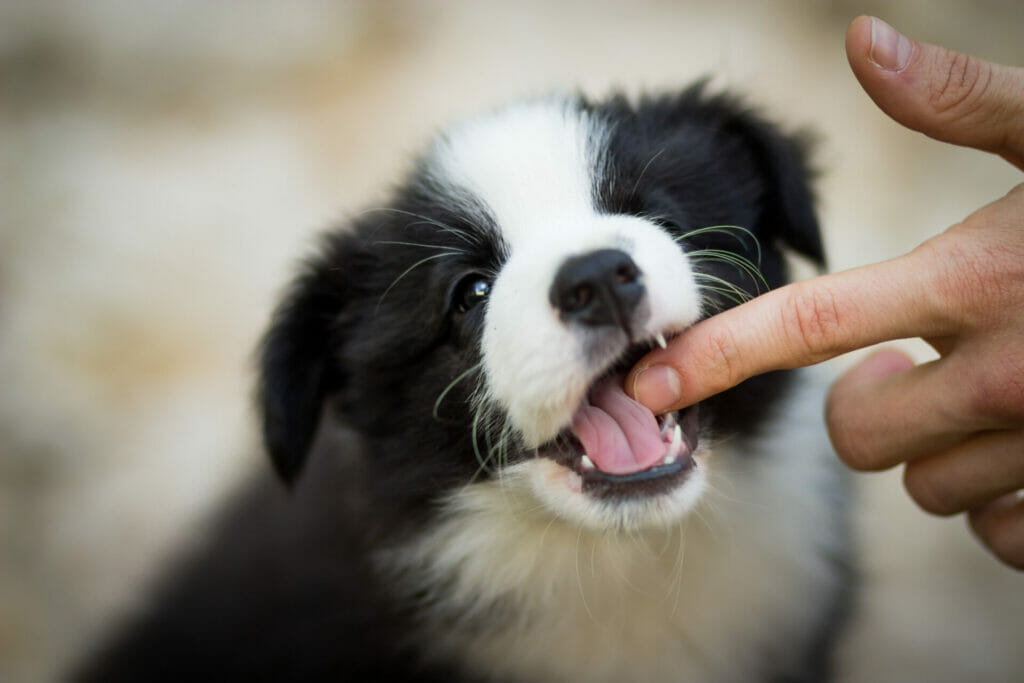
What are some reasons your pup might be biting?
A really important aspect of biting is to identify why your pup might be biting. It can be teething or playing, but sometimes when they’re biting, it’s them redirecting you. If you’re petting your pup too much it might be overwhelming and they’re telling you they’ve had too much stimulation. In these cases, it might be helpful to give them a nap!
Do puppies ever bite because they need more socialization?
Yes! You want to make sure your puppy is properly socialized; if they’re not getting the right amount of playtime, they’re going to bite you. Dog parks aren’t necessarily the best place for puppies because you can’t trust people are going to bring non-aggressive dogs, which can leave a negative impression when they’re most impressionable. But don’t worry! There are plenty of ways to socialize your puppy early on. It is important for your puppy to have strong mental health in order to be healthier throughout their life.
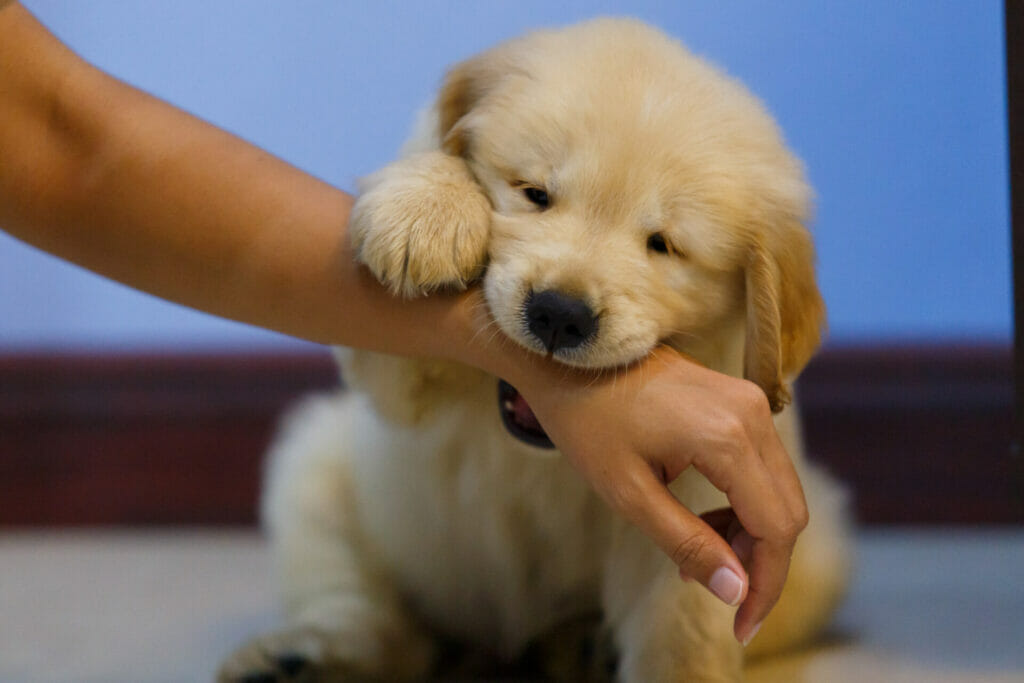
When should someone start to expect to see results and minimized biting?
It’s important to remember that this is not something where you can redirect once and then your puppy will immediately stop biting… behavior change happens through repetition. Once your puppy is done teething, if you’ve been consistent with redirection and providing mental stimulation, they should mostly be over their biting phase. It can be more challenging when you have kids because you also have to teach your kids to redirect your puppy as well!
Does your puppy bite? Ask us for tips at whatthepup@spotandtango.com!


